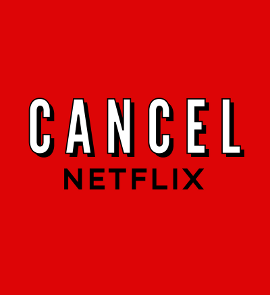Free Software Supporter
Issue 64, July 2013
Welcome to the Free Software Supporter, the Free Software Foundation's monthly news digest and action update -- being read by you and 68,680 other activists.
View this issue online here:
https://www.fsf.org/free-software-supporter/2013/free-software-supporter-issue-64-july-2013
Encourage your friends to subscribe and help us build an audience by adding our subscriber widget to your web site.
Miss an issue? You can catch up on back issues at
https://www.fsf.org/free-software-supporter.
#
El Free Software Supporter está disponible en español. Para ver la versión en español haz click aqui:
https://www.fsf.org/free-software-supporter/2013/
Para cambiar las preferencias de usuario y recibir los próximos números del Supporter en castellano, haz click aquí: http://crm.fsf.org/civicrm/profile/create?gid=34&reset=1
TABLE OF CONTENTS
- FSF, other groups join EFF to sue NSA over unconstitutional surveillance
- Donate to Replicant and support free software on mobile devices
- New Internationalist adopts DRM-free label and over 50 others added to the DRM-free Guide
- Windows 8: PRISM Edition
- Introducing the Licensing team summer intern: Vinay Kumar Singh
- Introducing Sankha, summer campaigns intern
- Will Ubuntu Edge commit to using only free software?
- Cancel Netflix if you value freedom
- Customers streaming away from Netflix
- A distress call from a company threatened by a patent troll
- Interview with Shiv Shankar Dayal of Kunjika
- RMS in San Miguel, El Salvador - "Gone Fishin"
- May 2013 - Ciudad Madero, Mexico - RMS at the ITCM
- Richard Stallman becomes a Hall-of-Famer
- New Snowden leak: Storing your data at Microsoft is negligent
- German Parliament elections: The parties' positions on free software
- For the first time in France, the Parliament passes legislation that gives priority to free software
- MediaGoblin 0.4.1 (bugfix release)
- Join the FSF and friends in updating the Free Software Directory
- LibrePlanet featured resource: Defective By Design's DRM FAQ
- GNU Spotlight with Karl Berry: 32 new GNU releases!
- GNU Toolchain Update
- Richard Stallman's speaking schedule and other FSF events
- Thank GNUs!
- Take action with the FSF!
FSF, other groups join EFF to sue NSA over unconstitutional surveillance
From July 16th
The Free Software Foundation (FSF) has joined eighteen other activist and advocacy organizations in challenging the National Security Agency's (NSA) mass surveillance of telecommunications in the United States with a lawsuit filed by the Electronic Frontier Foundation (EFF).
Donate to Replicant and support free software on mobile devices
From July 26th
The FSF launched a fundraising initiative for Replicant, a fully free Android distribution and the first mobile operating system (OS) to run without relying on proprietary system code.
Press release:
New Internationalist adopts DRM-free label and over 50 others added to the DRM-free Guide
From July 26th
The Guide to DRM-free Living is consistently one of the most comprehensive and sought out resources of the Defective by Design campaign. Since the last major overhaul of the Guide, readers like you have helped us add over fifty new listings and we've even added new subsections.
Windows 8: PRISM Edition
From July 25th
Microsoft is intercepting your stuff and sending it to the NSA (and the CIA and the FBI). This post offers suggestions on how to avoid surveillance, such as encrypting email, switching to GNU/Linux, and a full congressional investigation.
Introducing the Licensing team summer intern: Vinay Kumar Singh
From July 25th
Vinay Kumar Singh recently started working at the FSF as this summer's licensing intern. In this post, he writes about what brought him to free software, and the goals for his internship.
Introducing Sankha, summer campaigns intern
From June 28th
Sankha Narayan Guria recently started as this summer's campaigns team intern. In this post, he writes about his experiences in free software activism and development.
Will Ubuntu Edge commit to using only free software?
From July 25th
With $32 million to spend, will Canonical and Ubuntu commit to software freedom as the foundational design principle?
Cancel Netflix if you value freedom
From July 12th
What does Netflix's proposal to squeeze support for Digital Restrictions Management (DRM) into the HTML standard mean for you as a free software user?
Customers streaming away from Netflix
From July 3rd
Remember Turn off the TV Week? This summer, we have an even better reason to spend less time in front of a screen: Netflix is collaborating with the World Wide Web Consortium to destroy Web freedom.
A distress call from a company threatened by a patent troll
From July 11th
The FSF recently received a message from a software company in the legislative sights of the notorious patent troll NeoMedia Technologies. The company's lawyer, Charles Kramer, asked us to share a message with our supporters.
Interview with Shiv Shankar Dayal of Kunjika
From July 19th
This is the latest installment of our Licensing and Compliance Lab's series on free software developers who choose GNU licenses for their works. In this edition, we interviewed Shiv Shankar Dayal, the developer of Kunjika, an extensible web-based Q&A system.
RMS in San Miguel, El Salvador - "Gone Fishin"
From July 19
RMS was at the hotel Tropico Inn, in San Miguel, El Salvador, on June 5th, 2013, to deliver his speech "Copyright vs. Community," at the first Congreso Latinoamericano de Informática y Comunicaciones.
May 2013 - Ciudad Madero, Mexico - RMS at the ITCM
From July 18th
RMS was in the Gran Salón of the Instituto Tecnológico de Ciudad Madero, in Ciudad Madero, Mexico, on May 29th, 2013, to deliver his speech "El movimiento del software libre," to an audience of more than 850 people.
Richard Stallman becomes a Hall-of-Famer
From June 26th
Free Software Foundation founder and president Richard Stallman was inducted into the 2013 Internet Hall of Fame, joining the ranks of other visionaries like Aaron Swartz, Jimmy Wales, and John Perry Barlow, who have all made significant contributions to the advancement of the global Internet.
Press release:
New Snowden leak: Storing your data at Microsoft is negligent
By FSF Europe, from July 12th
In light of the recent revelations regarding Microsoft and the NSA's Prism program, how can free software activists promote online privacy?
German Parliament elections: The parties' positions on free software
By FSF Europe, from July 3rd
The Free Software Foundation Europe published its free software related election questions for this fall's elections to the German parliament, which will take place on September 22.
For the first time in France, the Parliament passes legislation that gives priority to free software
By April, from July 9th
The French Parliament wrote into law the first instance of free software priority in a public service, by adopting the Bill on Higher Education and Research.
MediaGoblin 0.4.1 (bugfix release)
By Chris Webber of MediaGoblin, from July 10th
The MediaGoblin project has pushed out a bugfix release closely following 0.4.0: Hall of the Archivist. Users running 0.4.0 are encouraged to switch over to take advantage of several fixes.
Join the FSF and friends in updating the Free Software Directory
From July 31th
Tens of thousands of people visit directory.fsf.org each month to discover free software. Each entry in the Directory contains a wealth of useful information, from basic category and descriptions to version control, IRC channels, documentation, and licensing. The Free Software Directory has been a great resource to software users over the past decade, but it needs your help staying up-to-date with new and exciting free software projects.
To help, join our weekly IRC meetings on Fridays. Meetings take place in the #fsf channel on irc.gnu.org, and usually include a handful of regulars as well as newcomers. Everyone's welcome.
The next meeting is Friday, August 2nd from 2pm to 5pm EDT (18:00 to 21:00 UTC). Details here:
After this meeting, you can check
https://www.fsf.org/events to see the rest of August's weekly meetings as they are scheduled.
LibrePlanet featured resource: Defective By Design's DRM FAQ
Every month on LibrePlanet, we highlight one resource that is interesting and useful -- often one that could use your help.
For this month, we are highlighting the Digital Restrictions Management (DRM) Frequently Asked Questions list put together by the Defective by Design campaign and is a collaboration among anti-DRM activists to develop introductory materials on why DRM is a threat to computing freedom. You are invited to adopt, spread and improve this important resource.
Do you have a suggestion for next month's featured resource? Let us know at
campaigns@fsf.org.
GNU Spotlight with Karl Berry: 32 new GNU releases!
32 new GNU releases this month (as of July 28, 2013):
- autogen-5.18
- bison-3.0
- ddrescue-1.17
- denemo-1.0.4
- freeipmi-1.2.9
- gettext-0.18.3
- glpk-4.52
- gnuhealth-2.0.0
- gnupg-1.4.14
- gsl-1.16
- gsrc-2013.07.06
- guile-sdl-0.5.0
- gvpe-2.25
- help2man-1.43.3
- jacal-1c3
- libextractor-1.1
- libgcrypt-1.5.3
- libidn-1.28
- libmicrohttpd-0.9.28
- libobjc2-1.7
- libzrtpcpp-2.3.4
- linux-libre-3.10-gnu
- lsh-2.1
- ocrad-0.22
- parallel-20130722
- pspp-0.8.0a
- scm-5f1
- slib-3b4
- ucommon-6.0.6
- units-2.02
- unrtf-0.21.5
- wb-2b2
To get announcements of most new GNU releases, subscribe to the info-gnu mailing list:
https://lists.gnu.org/mailman/listinfo/info-gnu. Nearly all GNU software is available from
http://ftp.gnu.org/gnu/, or preferably one of its mirrors (
https://www.gnu.org/prep/ftp.html). You can use the url
http://ftpmirror.gnu.org/ to be automatically redirected to a (hopefully) nearby and up-to-date mirror.
I'd like to welcome Gaganjyot as the new maintainer of Dr. Geo, Avneet Kaur as the new maintainer of GNU libffcall, and Thad Meyer as the new maintainer of GNU rottlog, as well as Pratik Bhoir as a new-comaintainer for GNU gnats. Thanks everyone.
The GNU Hackers Meeting for 2013 is scheduled to take place from August 22 to August 25 in Paris, France. More information at
https://www.gnu.org/ghm/2013/paris/.
A number of GNU packages, as well as the GNU operating system as a whole, are looking for maintainers and other assistance. Please see
https://www.gnu.org/server/takeaction.html#unmaint if you'd like to help. The general page on how to help GNU is at
https://www.gnu.org/help/help.html. To submit new packages to the GNU operating system, see
https://www.gnu.org/help/evaluation.html.
As always, please feel free to write to me,
karl@gnu.org, with any GNUish questions or suggestions for future installments.
GNU Toolchain update
By Nick Clifton, from July 29th
The GNU toolchain refers to the part of the GNU system which is used for building programs. These components of GNU are together often on other systems and for compiling programs for other platforms.
Read about updates to NEWLIB, GCC, and more.
Richard Stallman's speaking schedule
For event details, as well as to sign-up to be notified for future events in your area, please visit
https://www.fsf.org/events.
So far, Richard Stallman has the following events in August:
Other FSF and free software events
- Aug 01, 2013 09:00 AM to Aug 08, 2013 05:00 PM, Brno, Czech Republic, GUADEC 2013
- Aug 22, 2013 09:00 AM to Aug 25, 2013 12:00 PM, Paris, France, GNU Hackers Meeting 2013
- Sept 27, 2013 12:00 AM to 11:55 PM, Worldwide, Happy 30th Birthday, GNU!
Thank GNUs!
We appreciate everyone who donates to the Free Software Foundation, but we'd like to give special recognition to the folks who have donated $500 or more in the last month.
This month, a big Thank GNU to:
- Roland H. Pesch
- Jason Francis
- Antonio Carzaniga
- Mridul Muralidharan
- Sebastian Spaeth
- David Johnson
- Andrew Reid
You can add your name to this list by donating at
https://donate.fsf.org.
Take action with the FSF
Contributions from thousands of individual members enable the FSF's work. You can contribute by joining at
https://www.fsf.org/join. If you're already a member, you can help refer new members (and earn some rewards) by adding a line with your member number to your email signature like:
I'm an FSF member -- Help us support software freedom!
https://www.fsf.org/jf?referrer=2442
The FSF is also always looking for volunteers (
https://www.fsf.org/volunteer). From rabble-rousing to hacking, from issue coordination to envelope stuffing -- there's something here for everybody to do. Also, head over to our campaign section (
https://www.fsf.org/campaigns) and take action on software patents, DRM, free software adoption, OpenDocument, RIAA and more.
#
Copyright © 2013 Free Software Foundation, Inc.
This work is licensed under the Creative Commons Attribution 3.0 Unported License. To view a copy of this license, visit
https://creativecommons.org/licenses/by/3.0/.



